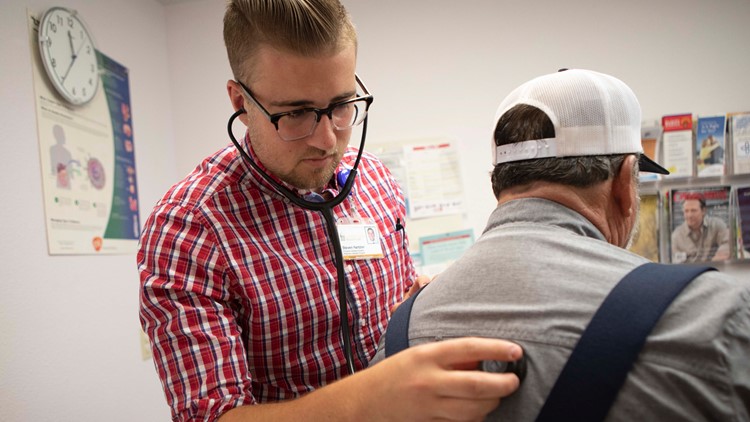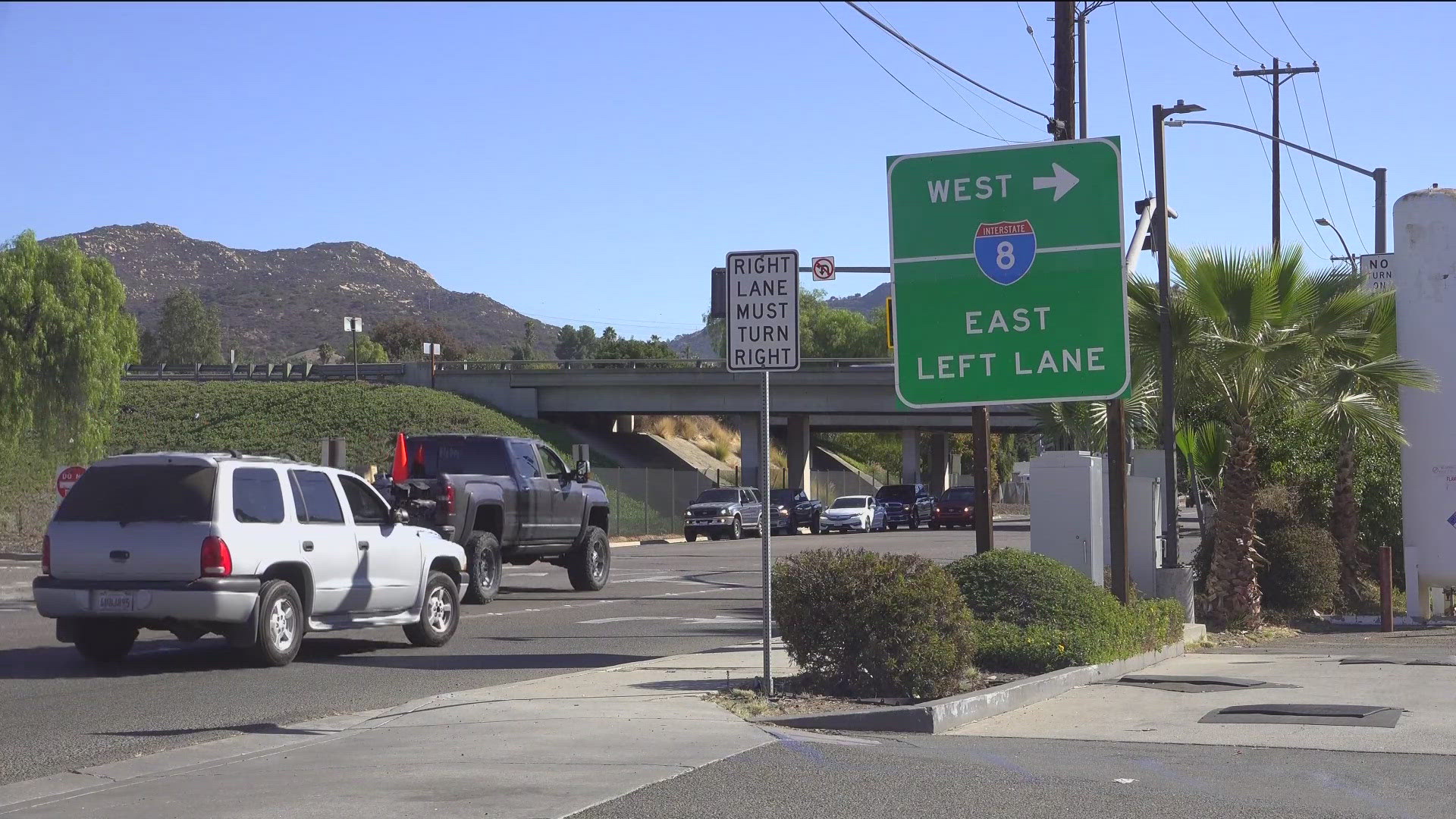CALIFORNIA, USA — In the last few years, California began restoring benefits in its Medi-Cal program that were cut during the last recession more than a decade ago. And in January, Gov. Gavin Newsom had even proposed expansions and deep investments that were poised to transform the multi-billion dollar health coverage program for low-income residents.
Then coronavirus happened. And how the picture has changed.
The state’s revised budget released last week shows that the Golden State’s new economic reality will almost certainly hit the Medi-Cal program with cuts in services and provider rates, as well as rescinded expansions. The list of proposed changes is sweeping, from canceling coverage expansion to more older Californians – including undocumented seniors – to cuts in some adult dental services.
The state’s budget also proposes to cut Medi-Cal coverage for hearing exams, speech therapy, eyeglasses, podiatry, acupuncture, occupational and physical therapy, pharmacist services and diabetes prevention program services.
Sharon Allen of Claremont is especially worried about the proposed cuts to Medi-Cal’s dental program. As a diabetic who suffered a heart attack, she’s learned it is especially important for her to stay on top of her oral care.
“I found out my heart attack was partially due to the bad teeth in my mouth,” Allen, 65, said. “Gum disease affects your whole body system.”
Under the revised state budget, adult dental benefits would revert to 2014 levels, which means enrollees would once again lose gum disease treatment, deep cleanings, partial dentures and root canals, said Shannon McConville, a researcher with the Public Policy Institute of California.
“Out of all the optional benefits, [dental] tends to be one that feels more difficult for people,” McConville said. Its elimination could result in more people going to the emergency room with tooth pain, she said.
Elimination of these optional benefits — those not mandated by the federal government — would save the state $54.7 million, according to the budget. But Newsom made clear that those Medi-Cal cuts won’t happen if the federal government provides the state enough funding to restore them.
“When there is a recession, the Medicaid program always faces difficult choices,” said John Baackes, CEO of LA Care Health, an insurance plan available to Medi-Cal enrollees in Los Angeles County. “They went after the usual suspects.”
Medi-Cal is California’s version of the Medicaid program.
The state’s proposed Medi-Cal budget of $112.1 billion is about $5 billion larger than the January proposal. However, spending will focus on basic, mandated care as the program will likely have to support significant growth in enrollment as people lose jobs or face reduced hours.
The revised budget assumes 14.5 million people will be on the Medi-Cal roll by July 2020—the highest ever, and about 2 million more than in December 2019. Medi-Cal sign-ups peaked at 13.6 million in 2016, according to the state’s Department of Health Care Services.
“The gains we had made have been cut from people when they were still recovering from the previous recession,” said Linda Nguy with Western Center on Law and Poverty. “To have them bear that burden once more is devastating.”
Newsom’s proposed budget especially lets down seniors, Nguy said.
For example, the state’s proposal to reinstate an expanded “estate recovery policy” could deter seniors from seeking the care they need, Nguy and other advocates said. This policy allows the state to seek repayment for certain services provided under Medi-Cal after a person has died, if the individual was 55 or older when services were provided and there is no will.
Typically, the only asset a low-income person has is their home, meaning this policy could potentially allow the state to come after a deceased person’s house, explained Claire Ramsey, a staff attorney with the Justice in Aging, an advocacy group focused on senior poverty.
In 2017, legislation limited which services the state could seek repayment for to include only some of the more expensive costs, like nursing facility services. Ramsey said expanding which services the state can seek repayment for “is a controversial idea. It makes people scared to sign up for the program.”
Meanwhile, other proposals that would have allowed more older residents to access free services have been placed on hold.
For example, under Medi-Cal’s Aged and Disabled Program, adults who are older, blind or have a disability currently have to meet stricter income requirements to qualify for free care. While most other adults qualify for free services with incomes of up to 138% of the federal poverty level (or about $17,600 a year for an individual), seniors and those with disabilities qualify at a lower income (about $15,500 a year).
If the older and disabled participants make slightly more than that, they must pay a certain amount before Medi-Cal coverage kicks in, like a deductible. Ramsey said this can result in seniors having to pay hundreds of dollars a month, forcing them to choose between food and medication.
This discrepancy is what health advocates often refer to as the “senior penalty.” The state of California was set to eliminate this penalty in August by raising the income eligibility threshold for older adults, which would have allowed tens of thousands more seniors to access free Medi-Cal services. Newsom pulled this proposal in the revised budget, saving the state almost $136 million.
“I think there will be a huge effort within the next few weeks to see whether we can push back on this,” Ramsey said. “If we don’t get to go forward now, it will likely take years.”
Before the pandemic, California also was set to become the first state in the nation to expand full health benefits to about 27,000 low-income seniors who are in the country illegally. Withdrawing that proposal will save the state nearly $113 million, the revised budget shows. California already offers Medi-Cal to undocumented children and young adults up to age 26; coverage for those groups will remain in place.
Sen. Maria Elena Durazo, a Democrat from Los Angeles, introduced a bill last year that proposed to cover this same group. She held her bill after being assured by Newsom that he would include this in his budget. Durazo said she got a message from the governor’s office right before Thursday’s announcement, letting her know that the expansion would be excluded.
“I’m not naive, but I was definitely hopeful,” Durazo said. “I’m not ignoring the reality of this economic crisis.”
But she said a public health crisis highlights the need for coverage, especially among seniors. Had her proposal been approved during the last legislative cycle, she said, undocumented seniors could have been better prepared to deal with today’s pandemic.
Also on the back burner for now is one of Newsom’s more ambitious plans: Medi-Cal Healthier California for All, formerly known as CalAIM. This would remodel the Medi-Cal program to one that invests more in preventive care and front-end services, like providing housing assistance for homeless people and meals for seniors, to try to prevent more costly services later.
“It was the centerpiece of my state of the state,” Newsom said during his budget presentation. “This is one of the proposals in the January budget that we have to pull back, just the reality of the moment. That said, it’s also one of the proposals that’s triggered if there’s support from the federal government to go forward.”
Sharon Allen, the Claremont woman needing dental work, said she went without proper dental care for years before full benefits were restored in 2018. That, paired with the stress of struggling to find permanent housing, hurt her overall health, she said. For four years, she stayed with friends, sleeping on couches and in garages.
She’d like to go into the dentist before the cuts are made. But because of the coronavirus, she said, she’s been afraid to visit the dentist.
“Being locked in and worrying about bad teeth causes more anxiety,” she said. “To cut services that can cause someone’s health to decline, I think it’s like a death sentence.”
CalMatters.org is a nonprofit, nonpartisan media venture explaining California policies and politics.



